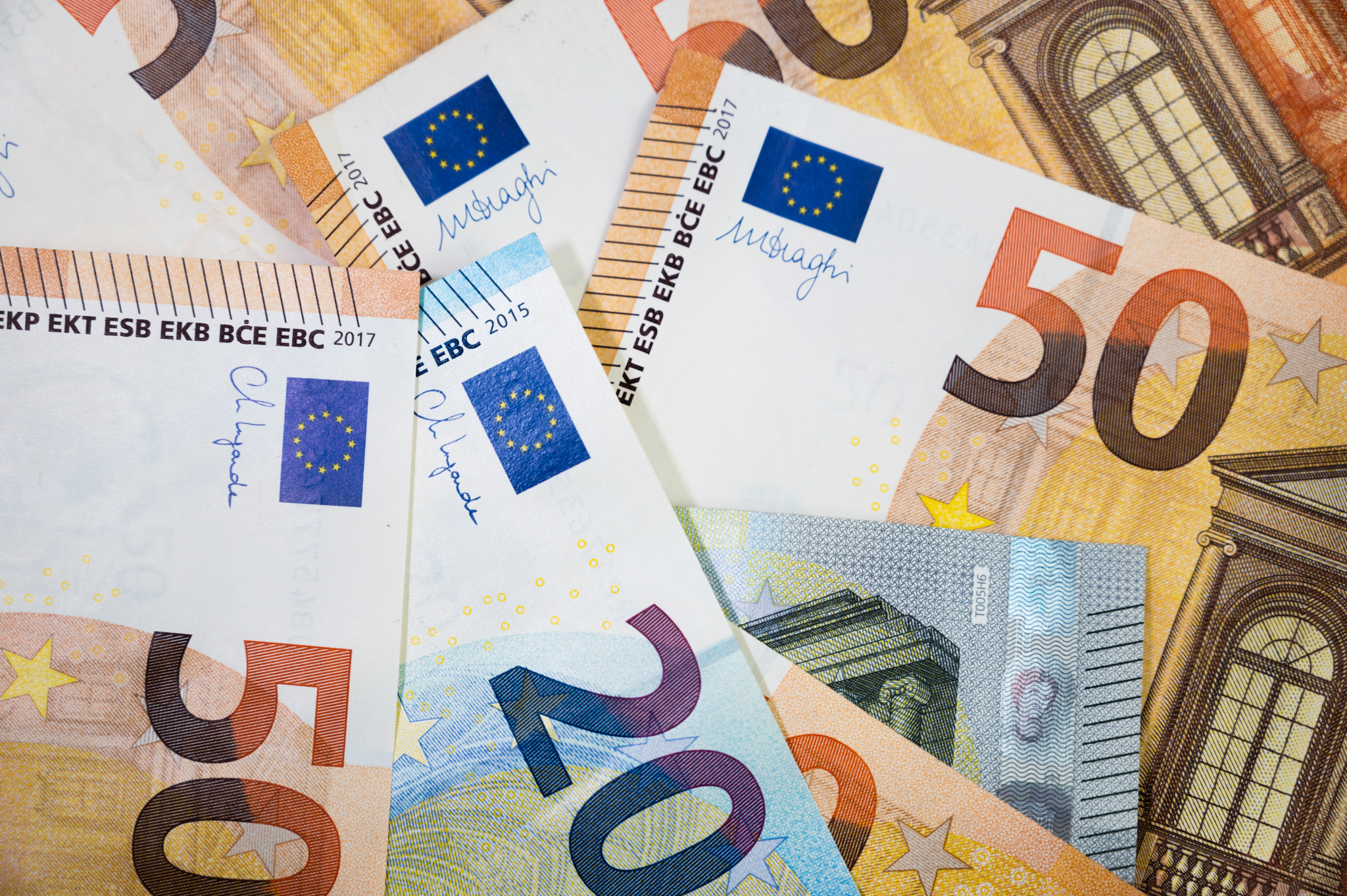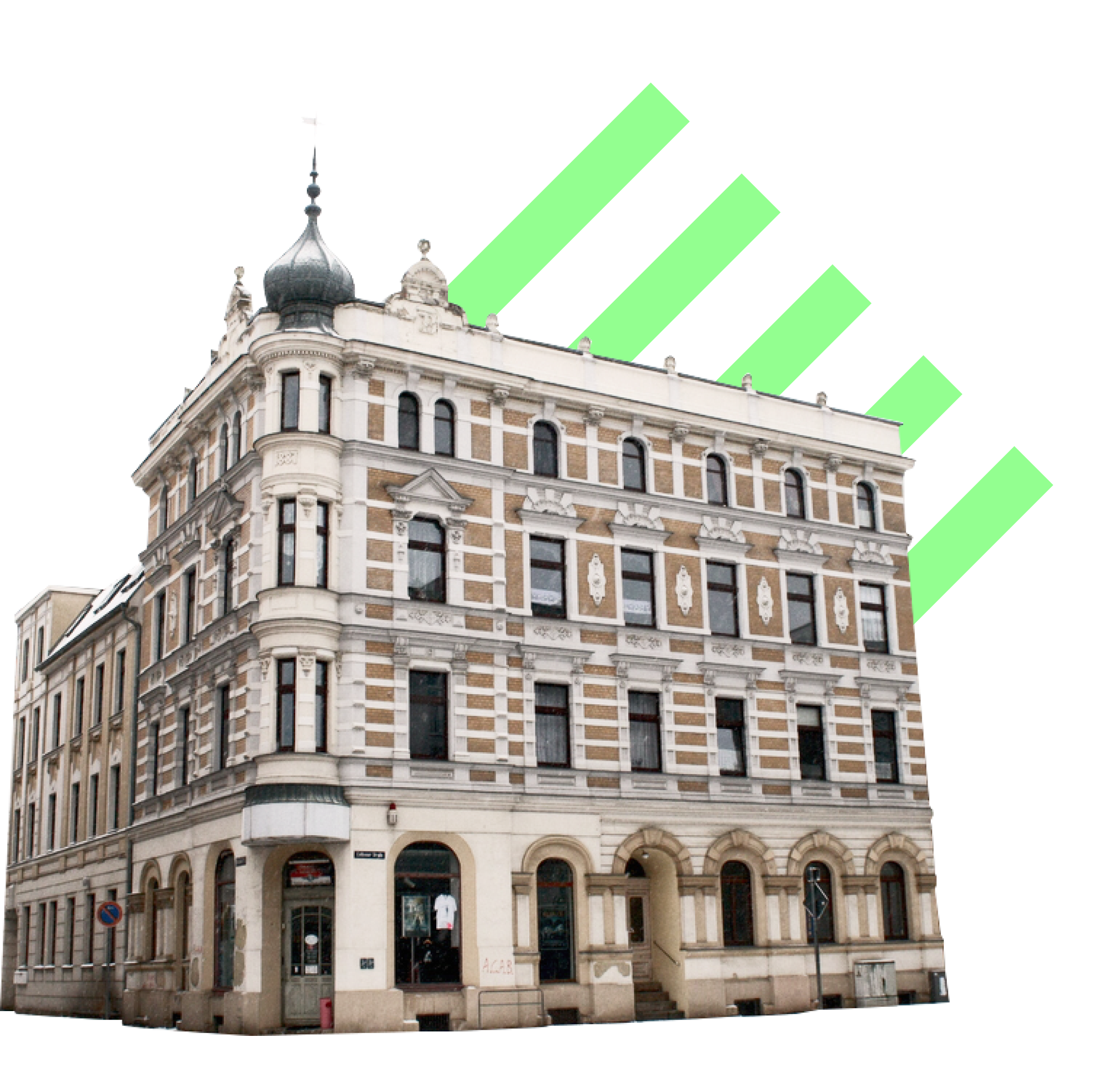When the ECB Raises Interest Rates
Why Rising Rates Aren’t a Reason to Panic

Written by: Josephine Nguyen
Key Interest Rates May Rise
When the ECB changes interest rates, there's always a reason behind it. Hiking up interest rates aims to curb inflation and helping the euro regain its value. But the entire thing also means borrowing money will become more expensive. Before you start panicking: Rising interest rates don't mean the end of your real estate dreams. In this article, you'll learn more about the key interest rates and how this increase will affect your existing and future loans.
Current Key Interest Rates
(Last update: December 12, 2024)
Marginal lending facility | 3.40 % |
Main refinancing operations (fixed rate) | 3.15 % |
Deposit facility | 3.0 % |
- Key interest rates explained
- Why change them now?
- Time to panic?
Key Interest Rates Explained
To classify this news, it might help to understand what key interest rates are in the first place. These are the interest rates at which commercial banks can borrow or invest money with a central bank. The interest rates are set by the respective central banks. For the 19 euro countries, it's the European Central Bank (ECB). There are three different key interest rates, each of which applies to different situations:
The main refinancing rate
The main refinancing rate is the interest rate that commercial banks pay to borrow money from the ECB. This is THE key interest rate that most people talk about. If this key rate is raised, less money is borrowed by banks, which should boost the euro's value accordingly. If it is lowered, the opposite happens.The marginal lending rate
This rate determines how much commercial banks have to pay to borrow money from the ECB for a day or overnight (overnight lending) to balance debit and thus remain solvent.The deposit rate
The deposit rate is the interest that commercial banks pay or receive when they (have to) deposit excess money with the ECB. This interest rate has been negative for a while now, i.e., banks have had to pay more to store money — and have passed the cost on to savers. In other words, there were penalty interest rates (also euphemistically called "custody fees"), which then hurt savings balances. This was also why it wasn't worth leaving all the savings in the account for a long time.
Why Change the Key Interest Rates During Inflation?
Why were key interest rates actually raised during inflation? The extent of the inflation was the main reason. It was at a record high of 9.1% in 2022! By raising the key interest rate, they tried to push inflation down to a normal level of 2 %. But where the hell does inflation come from? There can be various reasons for inflation:
Scenario A:
There's too much money in circulation, which increases consumption and demand. That, in turn, leads to higher prices to squeeze demand. And higher prices mean: You need more money to afford something. So the money you have loses purchasing power.
Scenario B:
Due to supply shortages or too much demand, there is a product shortage. As a result, products become more desirable, and prices are raised. Again, this leads to a decrease in purchasing power.
You see: In both scenarios, prices rise, and your money becomes correspondingly less valuable. However, the key interest rates can only directly influence scenario A, i.e., how much money is put into circulation. The strategy is to tighten the money supply to get people into savings mode. By raising the key interest rates and thus increasing the cost of borrowing, less money is requested from banks — so existing money is worth more again. Higher borrowing costs lead to more moderate buying behavior, and demand falls. The economy is thus slowed down a bit. This also allows purchase prices to become more favorable again.
However, as we know, scenario B also exists in the current situation; high prices due to shortages. The big issue in Europe is the energy supply. Due to the war, the sanctions, the associated tense relationship with Russia, and generally high demand after the pandemic, oil and gas have become very expensive. In some cases, heating, refueling, and electricity costs may quadruple this year. This also affects other products that are manufactured. Other raw materials, such as building materials, have become more expensive due to low supply. Because none of this has anything to do with the currency itself, the ECB can't make much of a difference here.
Time to Panic?
Our unambiguous answer to this: No. The key interest rate had to be raised because of the situation. If the ECB had waited too long, the damage would be much more significant. That this step happened during an energy supply crisis is, admittedly, a bit annoying. But the federal government is looking for solutions to mitigate the costs and consequences. How the situation will develop remains to be seen. Until then, it's a matter of conserving heating and electricity as best you can. If you can, try to reduce unnecessary expenses and put some money aside instead.
The higher interest rates are good news for savers: With the elimination of negative interest rates, savings rates will likely improve again, making it worth leaving a little more money in your account. So if you want to accumulate equity, saving up is now easier.
If you've already taken out a mortgage, the inflation benefited you due to the devaluation of the money. But don't fret: Even if inflation returns to normal, you've already secured historically low interest rates for your mortgage. In other words, you did everything right. Go ahead and give yourself a proud pat on the back.
If you're in the process of obtaining a mortgage or are looking for follow-up financing, you're also in luck: The conditions are pretty good at the moment.
You can get the best conditions by contacting our Urbyo finance pros. They always know the latest offers and developments and can find the fairest and most favorable loan interest rates for your financial situation. Just call for a no-obligation consultation right now:

